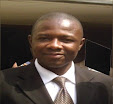THE CONTROVERSY ON TEACHING HOSPITAL CONSULTANT APPOINTMENTS
The burning issues in some Teaching Hospitals in recent times, was the issue of the appointment of non-doctors into the position of consultants in the Teaching Hospitals.
The actual issue was situate in the legality or otherwise of the proposed appointment and not on whose position was more enticing or more attractive to overbearing cantankerous few.
The problem remains that medical leaderships keep talking and harping on international best practices, as if international best practices have been incorporated as a section in the Nigerian Constitution.
While international best practices are presumed the best practices in the medical profession, they are not necessarily the statutory, legitimate and practicable practices that the law of Nigeria would permit.
The first port of call, in what method could be legitimately adopted, is what is in the Nigerian laws, and not what is in the best practices.
Best practices only prevail in circumstances where there is no local laws regulating such practices. Where there is a written law on a particular subject matter on the professional relationships, no profession is permitted by law to stampede the written law or the creations of such law. The only available options open to the antagonists are the alterations of the existing law; and this is where the medical profession must keep vigil if they want to sustain the status quo ante.
In the instant case of the clamour for non-doctors to be appointed consultants in our Teaching Hospitals, it is adequately provided for, in our Teaching Hospital laws.
One then finds it extremely difficult to understand why this matter would ever generate controversy in the first place. How could a matter adequately provided for in the laws generate such controversies!
The Teaching Hospital Reconstitution of Board Act is clear on who should be a consultant. It is as clear as crystal. The Act made it clear that ONLY those professionals that render medical services can be consultants.
The Teaching Hospital Reconstitution of Board Act is the law regulating the management of the Teaching Hospitals. It is the law that provides for how staff of Teaching Hospitals (including consultants) can be employed, advanced, disciplined and removed. Granted that the Act did not define consultant in its Interpretation section, yet it defined it in the body of the Act at section 5.
Section 5 of this Act, which provides for the appointment of Chief Medical Director, Director of Administration and other staff, including the consultants, states:
5(5) Subject to this Act, the Board shall have power to appoint (including power to appoint on promotion and transfer and of confirmation of appointments), advance, terminate or discipline employees (including consultants) holding or acting in any office in the hospital; and any such appointment shall be made having due regard to any personnel establishment approved for the hospital.
(6) Notwithstanding any provision of this Act to the contrary, the Board may, from time to time, appoint consultants outside the University to perform such medical duties as the Board or the Chief Medical Director may assign to such consultants.
There is no other place in the Act that consultant was mentioned. The emphasis here are consultants outside the University (ie consultants appointed for the hospital functions), and medical duties. The term medical has been variously construed by Nigerian courts to mean medical practitioners.
There is no other type of consultants stated in the Act. Therefore, where is the consultant nurse or consultant pharmacist deriving their authority from? Is this another issue of superior best practices playing out? I do not think so.
It is instructive that in those Teaching Hospitals where non doctors have been elevated to the position of consultants, it was Chief Medical Directors (CMDs) who are doctors, that did that promotion. One then wonders if those CMDs really knew what they were doing. It is obvious that they are not fit to occupy that sensitive positions, having been unable to know what the law creating their hospitals said about employment and appointment of consultants.
©Awkadigwe Fredrick Ikenna 2017
MBBS, LLB, MWACOG, DSC
This article can be read and shared purely for enlightenment and education of the people of Nigeria. The reader can also freely comment and argue with the thoughts of this author using chrome or web browser preferably, as opera mini does not readily open the comments area.
© Copyright 2017 Ikenna Fredrick Awkadigwe. All rights reserved. No part of this publication is permitted to be used in any way, copied, photocopied printed, reproduced, transferred, adapted, argued in any fora, used in Court or recreated in any form or resemblance whatsoever, without the written approval and license of the author, Ikenna Fredrick Awkadigwe.
This article can be read and shared purely for enlightenment and education of the people of Nigeria. The reader can also freely comment and argue with the thoughts of this author using chrome or web browser preferably, as opera mini does not readily open the comments area.
© Copyright 2017 Ikenna Fredrick Awkadigwe. All rights reserved. No part of this publication is permitted to be used in any way, copied, photocopied printed, reproduced, transferred, adapted, argued in any fora, used in Court or recreated in any form or resemblance whatsoever, without the written approval and license of the author, Ikenna Fredrick Awkadigwe.

No comments:
Post a Comment